MercoPress. South Atlantic News Agency
Stories for 2010
-
Friday, January 29th 2010 - 09:58 UTC
Uruguay 2009 competitiveness erodes 10.2% compared to main trade partners

Uruguay’ competitiveness eroded 10.2% during the twelve months of 2009, which represents the third consecutive annual loss. The data was extracted from Uruguay’s Central Bank Real Exchange Rate index (TCR) which measures variations with the country’s main trade partners.
In 2008 TCR lost 7.4% and the previous year, 7%. -
Friday, January 29th 2010 - 09:19 UTC
Brazilian company invests heavily in Uruguayan dairy industry
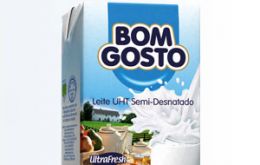
A major Brazilian dairy corporation, Laticinios Bom Gosto will begin to build its affiliate in Uruguay next May to produce powder milk and butter mainly for the Brazilian market.
-
Friday, January 29th 2010 - 09:15 UTC
“Global Statesman” Lula da Silva recovers from high blood pressure peak
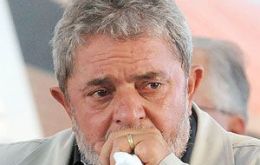
Brazilian president Lula da Silva is resting at his private home after having suffered a high blood pressure peak on Wednesday which forced him to cancel his trip to the World Economic Forum in Davos where he was to be honoured with the Global Statesman Prize.
-
Friday, January 29th 2010 - 09:12 UTC
Argentine teamsters’ boss penchant for a five-star hotel in Punta del Este
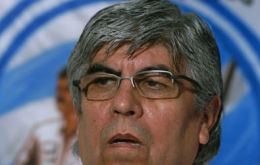
The head of Argentina’s powerful trade union confederation (CGT), teamster Hugo Moyano strongly denied Thursday that his union had plans to purchase a hotel in the Uruguayan posh sea side resort of Punta del Este.
-
Friday, January 29th 2010 - 09:08 UTC
Released from glaciers Patagonia mountains are growing taller
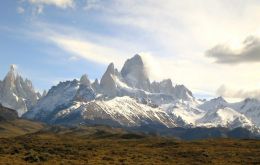
Mountains along the southernmost swath of South America are growing taller at a record rate, say researchers, who attribute the growth to the accelerating loss of glaciers.
-
Friday, January 29th 2010 - 06:48 UTC
Bill Clinton asks Davos forum for money and distribution trucks
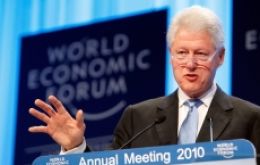
Former US President Bill Clinton appealed for global business leaders to help Haiti rebuild after the earthquake which devastated its coastal capital and killed as many as 200,000 people.
-
Friday, January 29th 2010 - 06:08 UTC
Chilean peso slumps on poor economic data and China: 530 to the US dollar

The Chilean peso fell for a ninth day running, its longest losing streak in 15 months, as December industrial sales and production data came in below forecasts and bearish prospects for the country’s main export, copper given China’s strong liquidity and credit restrictions.
-
Friday, January 29th 2010 - 06:00 UTC
Ford post full-year earnings for the first time since 2005

Ford Motor Co posted 2009 earnings of 2.7 billion USD, its first full-year profit since 2005, and said it expected a 2010 profit amid market share gains and a slow US auto sales recovery.
-
Friday, January 29th 2010 - 03:05 UTC
Cambio? The Obama Administration in Latin America: A Disappointing Year in Perspective

In a memorandum written as Barack Obama assumed office in January 2009 COHA’s Research Fellows Guy Hursthouse and Tomás Ayuso considered widespread Latin American expectations of a dramatic shift in approach from Washington under the new president, and outlined an agenda for change aimed at achieving those hopes as the result of a bold new direction for U.S. relations with the region. A year later, they offer their evaluation of developments to date and conclude that a clear and meaningful program of change has failed to materialize under Obama, his Secretary of State, and the leadership team to which he has looked for drafting his regional agendas. At best, their fractured approach to Latin American issues has delivered mixed results. Looking ahead, the authors ask, despite the continued backing Obama continues to enjoy from a resilient public that still refuses give up on him, can we expect the president’s second year in office to deliver that coherent mixture of realism and idealism which has up to now proved elusive?
-
Friday, January 29th 2010 - 02:22 UTC
Tough year ahead for Venezuelan president Hugo Chavez
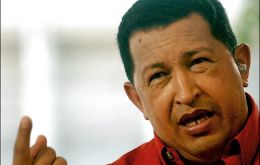
Venezuelan president Hugo Chavez is facing a tough 2010 with growing complaints over shortages of electricity and water and a sharp currency devaluation that could harm the chances of his supporters in congressional elections in September.
